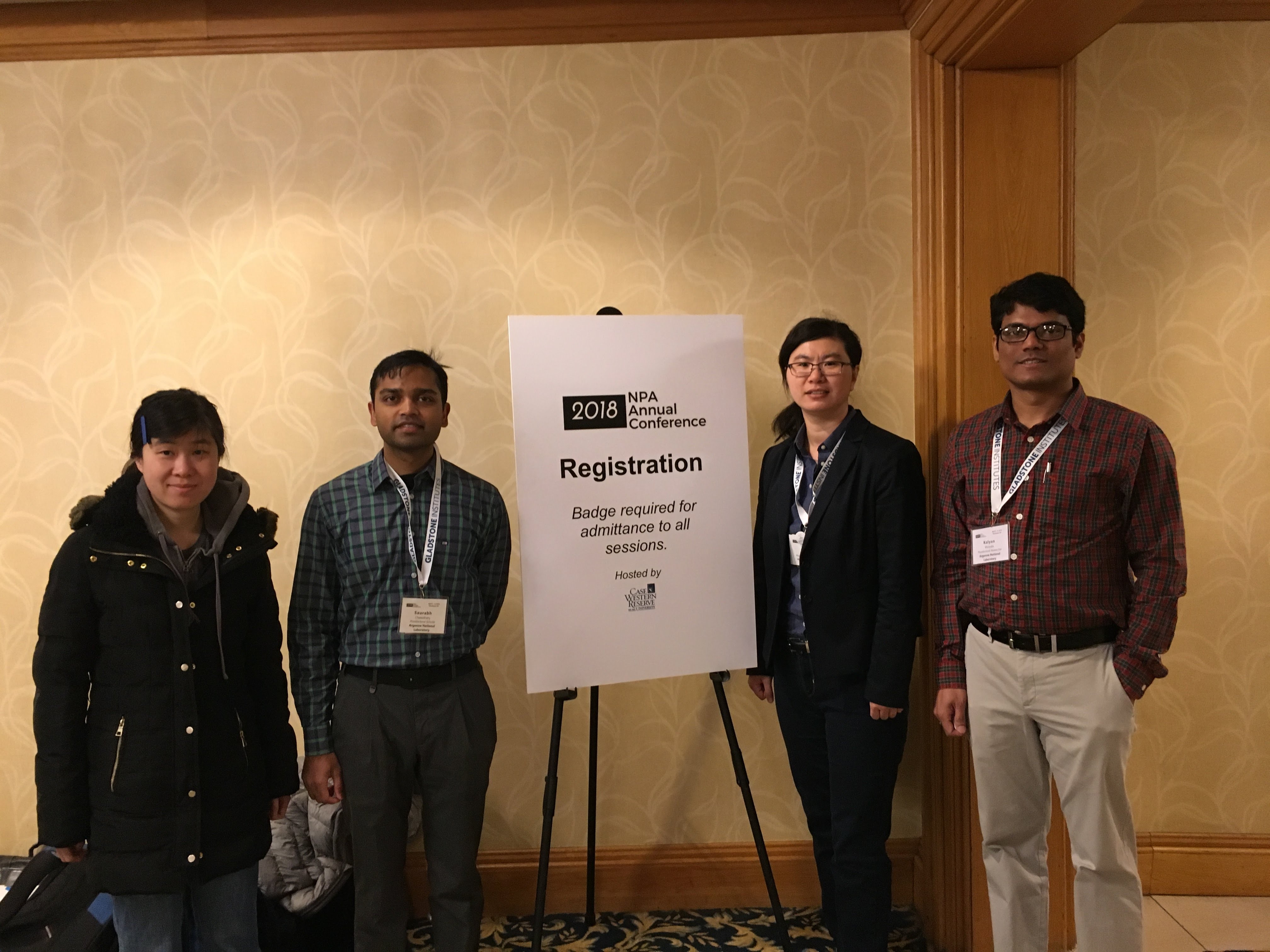
Lu Ma (XSD), Saurabh Chawdhary (MCS), Li Tang (AMD) and Kalyan Mutyala (NST) at the 2018 NPA Conference in Cleveland, OH.
This past April, four Postdoctoral Appointees from across the Lab attended the 2018 National Postdoctoral Association Conference. This yearly event brings together postdocs, postdoctoral program administrators and leaders invested in postdoctoral development to learn the latest in issues that impact postdocs and share ideas to help postdocs achieve career success. We asked each of the Argonne attendees to share what they learned from the conference with the broader Argonne community. This week, Saurabh Chawdhary (MCS) shares some important lessons, including a timely topic, implicit bias.
Saurabh’s story:
Let me begin by saying that being at this conference was surprisingly enriching. Since this is my first year as postdoc, I did not know much about NPA, postdoc associations or being a postdoc in general. It was beneficial to understand the resources (professional development, outreach, legal help, networking, job-search) available to postdocs.
There were interesting sessions that I attended. A very enlightening session about the role of diversity and implicit bias in research, and in our society at large, and ways to deal with it was given by Dr. J. Marcela Hernandez from Ohio State University. It engaged participants into introspection about how to identify and tackle such biases. Here is an interesting video by The Royal Society that talks about unconscious bias.
A session on global mobility in research was provided helpful information about how to make an international move and position yourself to benefit from it. This can be attractive to those of us wanting to move out another country or just live abroad for some time. Here is a link to more resources in shared drive.
A workshop on using design thinking applied to your career was popular with room overflowing. It is based on the idea about using design process to better achieve any goal, not just a product design. For example, the ‘product’ under consideration can be your career and you can apply three steps of design thinking classified broadly as – (1) Materialize – test, implement (2) Understand – empathize, define and (3) Explore – ideate, prototype. The concept is described briefly in this article and in detail in the Bill Burnett’s book Designing Your Life.
The poster session gave us an opportunity to learn about the activities of PDAs (Postdoctoral Associations) at other institutions. I came to know about an organization called Euraxess, funded by European Commission to recruit researchers around the world. They have a starter research grant suited for postdocs wanting to go in academic research anywhere in Europe. Moreover, NPA website now has a career section where you can register your Resume/CV for prospective employers to see. Overall, I was impressed by the work that NPA is doing to forward the interests of us postdocs.
References:
Video: https://youtu.be/dVp9Z5k0dEE
Shared Drive: www.goo.gl/k2tKuU
Design thinking: https://minutehack.com/opinions/5-ways-to-build-a-better-life-through-design-thinking
Designing Your Life book: https://www.amazon.com/Designing-Your-Life-Well-Lived-Joyful/dp/1101875321

